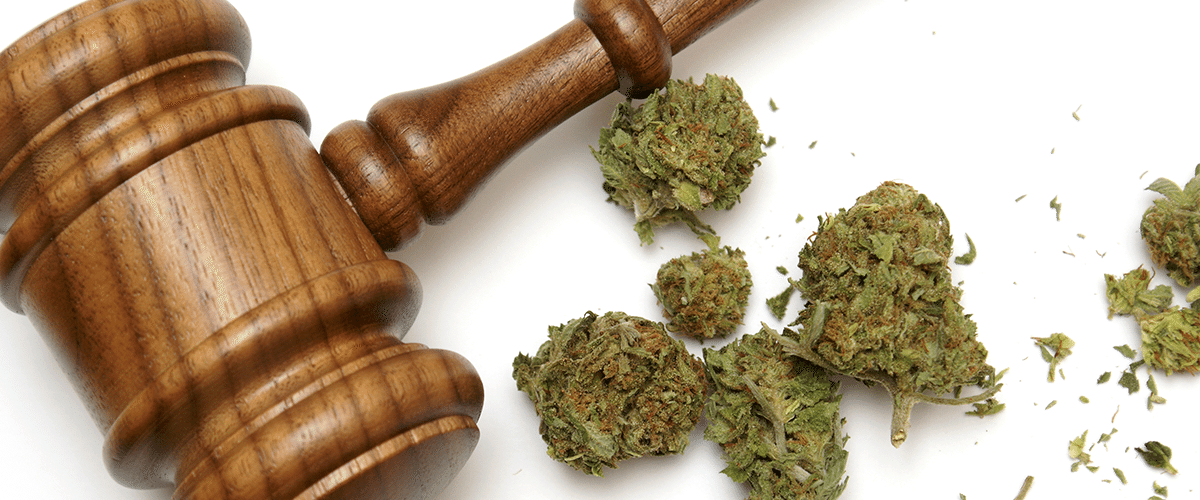[vc_row][vc_column][vc_column_text]
A group of five plaintiffs have come together to file suit against the federal government and Trump officials over marijuana’s status as a Schedule I substance.
A diverse group of plaintiffs have filed a federal lawsuit challenging the constitutionality of marijuana’s classification under the Controlled Substances Act (CSA). Filed in New York District court, the 89-page lawsuit names Attorney General Jeff Sessions, the Department of Justice, and the Drug Enforcement Administration, and requests that the CSA be declared unconstitutional.
Under the CSA, marijuana is classified as Schedule I, a category reserved for “drugs, substances or chemicals… with no currently accepted medical use and a high potential for abuse.” Marijuana is included with substances like heroin, lysergic acid diethylamide (LSD), and methylenedioxymethamphetamine (ecstasy).
The National Institute on Drug Abuse (NIDA) and the National Cancer Institute, each research groups funded by the U.S. government, have acknowledged that cannabis extracts may help reduce the size of tumors and kill certain cancer kills. The NIDA also notes that cannabis’ two main cannabinoids – tetrahydrocannabinol (THC) and cannabidiol (CBD) – can be useful for decreasing pain, inflammation, epileptic seizures, and muscle control problems.
“Indeed, the Federal Government has admitted repeatedly in writing and implemented national policy reflecting that Cannabis does in fact, have medical uses and can be used and tested safely under medical supervision,” the complaint reads. “On that basis, the federal government has exploited cannabis economically for more than a decade by securing a medical cannabis patient and entering into license agreements with medical licensees.”
“The record makes clear that the CSA doesn’t make any rational sense, and the federal government knows it,” Michael Hiller, lead attorney for the plaintiffs, told the New York Post.
The collection of five plaintiffs include former National Football League player Marvin Washington, who’s also a Sports Advisory Board member and spokesman for Medical Marijuana, Inc.’s portfolio company Kannalife Sciences. Washington has discussed CBD’s potential benefits for treating chronic traumatic encephalopathy (CTE), a degenerative brain disease found in athletes, military veterans and others with a history of repetitive brain trauma, on Fox Business, MSNBC, and ESPN’s Outside The Lines.
Also a plaintiff is Jose Balen, 34, who served in the U.S. Army and served in Iraq for 14 months starting in May 2003. Diagnosed with post-traumatic stress disorder (PTSD), Balen is suing for the right to enter a military base, travel by airplane, and travel to states where access to medical cannabis is legal.
Two children who use medical marijuana are also included as plaintiffs. Alexis Bortell, 11, uses cannabis to treat her intractable epilepsy disorder. Jagger Cotte, 6, relies on medical cannabis for relieving pain caused by Leigh’s Disease.
Also included as a plaintiff is New York’s Cannabis Cultural Association, a 501(c)3 nonprofit that helps marginalized and underrepresented communities engage in the legal cannabis industry.
Their lawsuit also claims that the CSA was enacted in 1970 not because of concern for public safety, but to suppress the rights of African Americans and those who protested the Vietnam War.
“The Nixon Administration ushered the CSA through Congress and insisted that cannabis be included on Schedule I so that African Americans and war protesters could be raided, prosecuted and incarcerated without identifying the actual and unconstitutional basis for the government’s actions,” the complaint states.
Despite marijuana’s federal prohibition, eight U.S. states have passed their own laws allowing recreational marijuana and 29 have legalized medical marijuana. For years, states have been able to implement their own cannabis laws without interference from the federal government, but he Trump administration has made recent efforts to enforce federal law.
You can learn more about cannabis laws in the U.S., as well as the research done investigating cannabis’ therapeutic potential, through our education page.[/vc_column_text][/vc_column][/vc_row]






